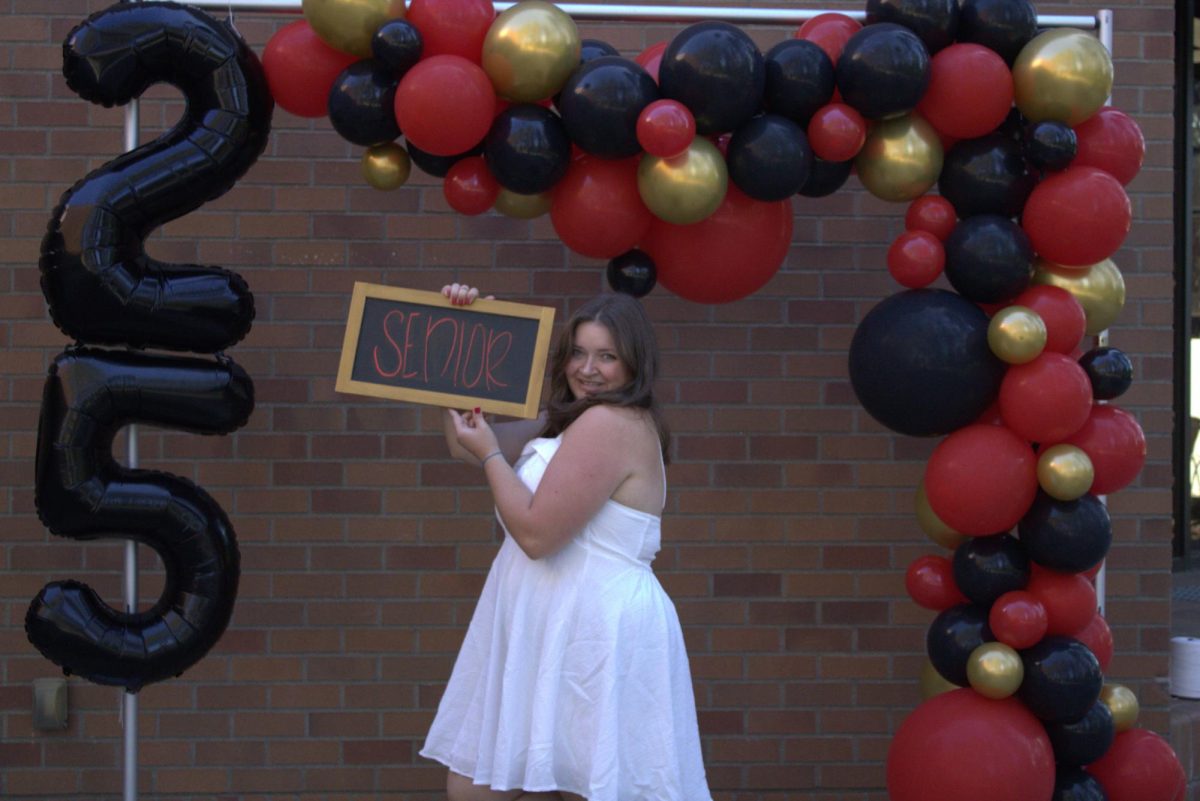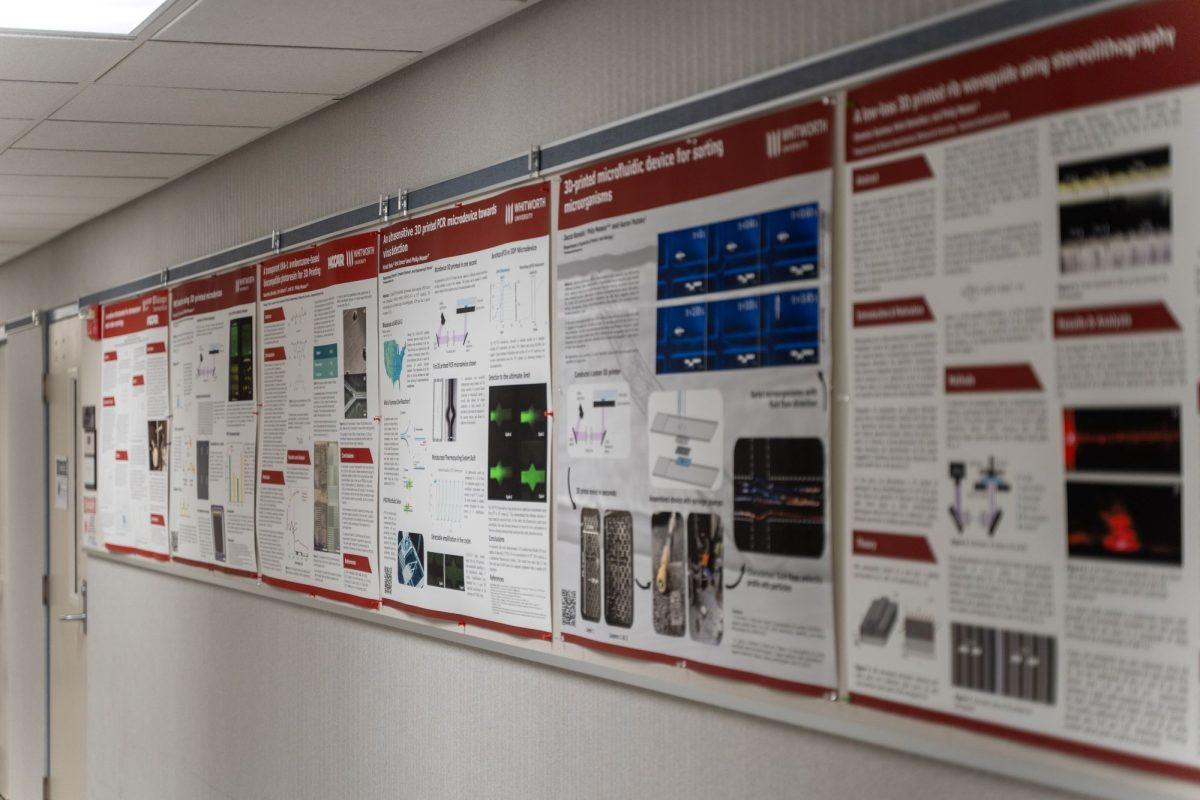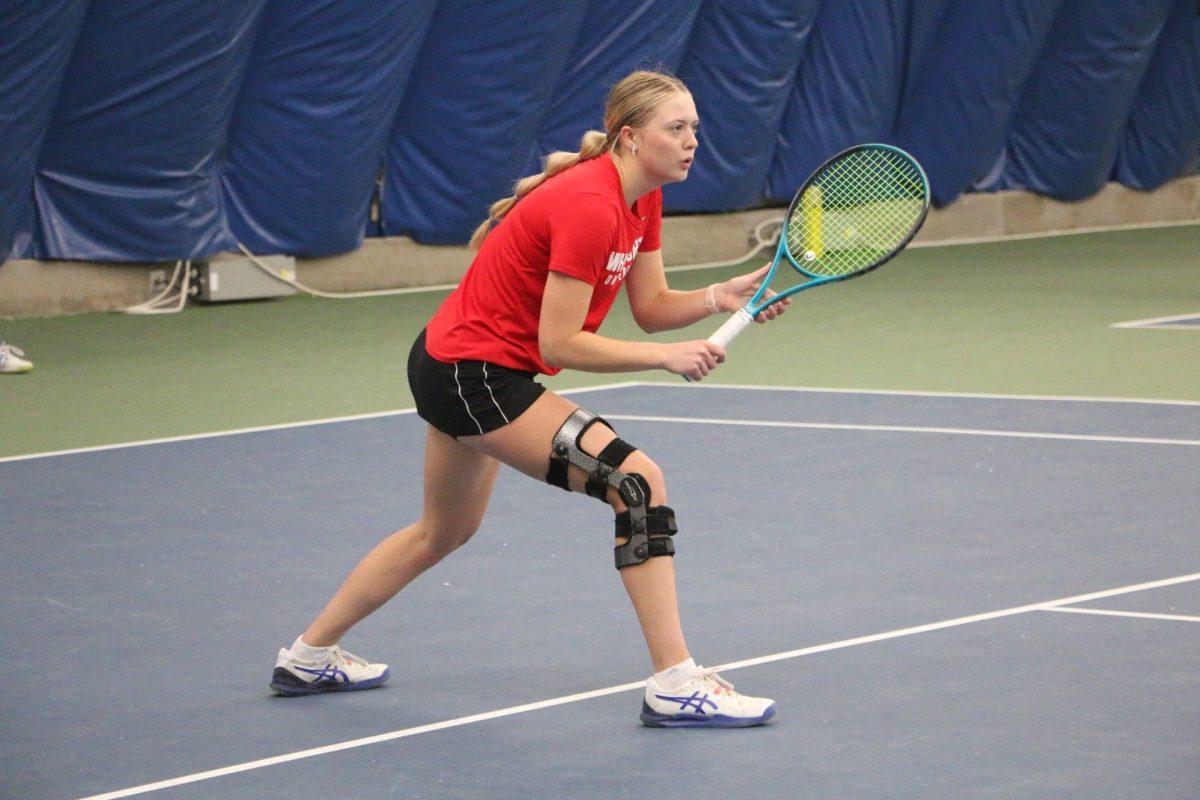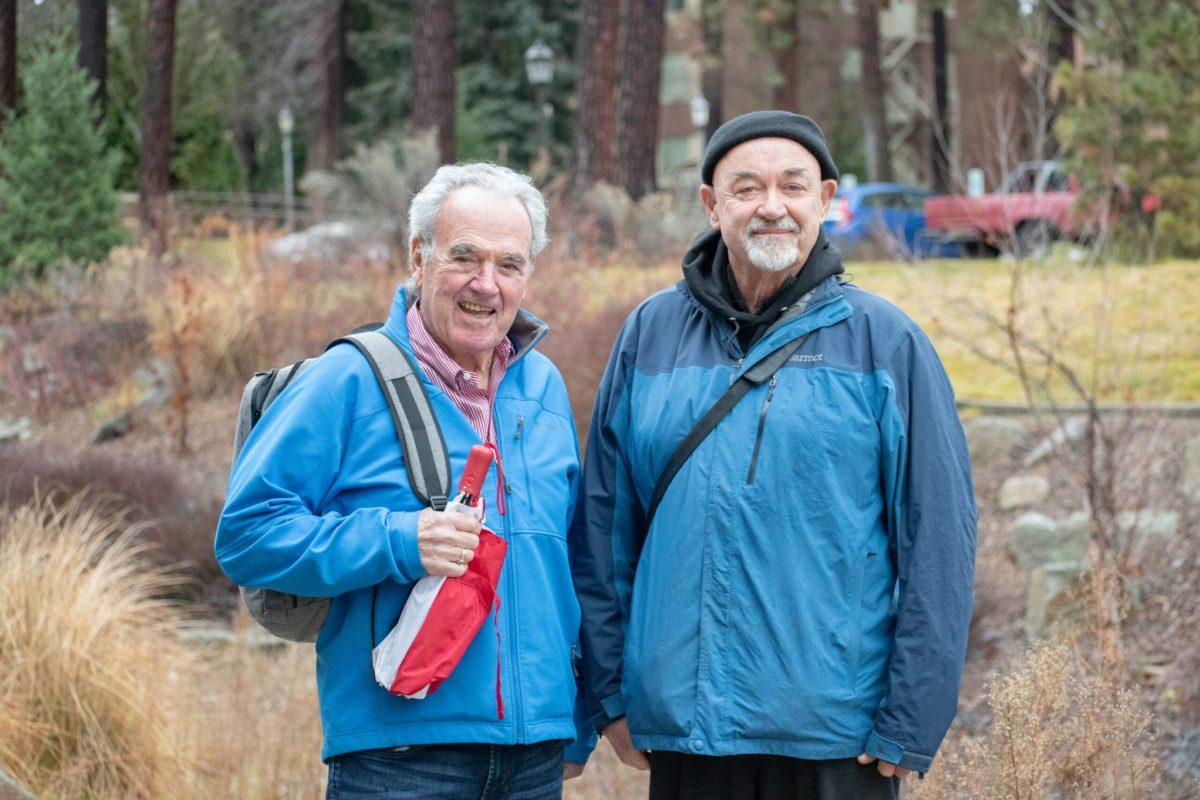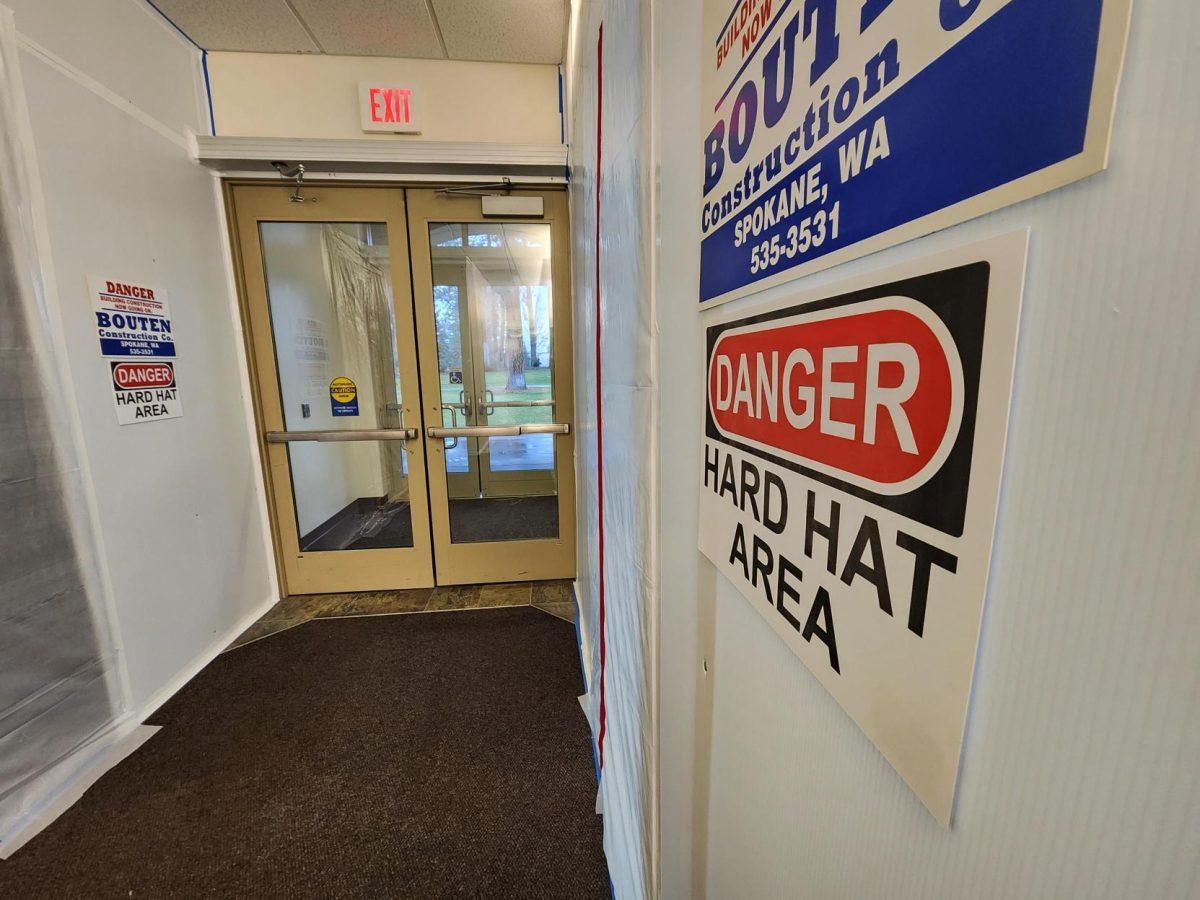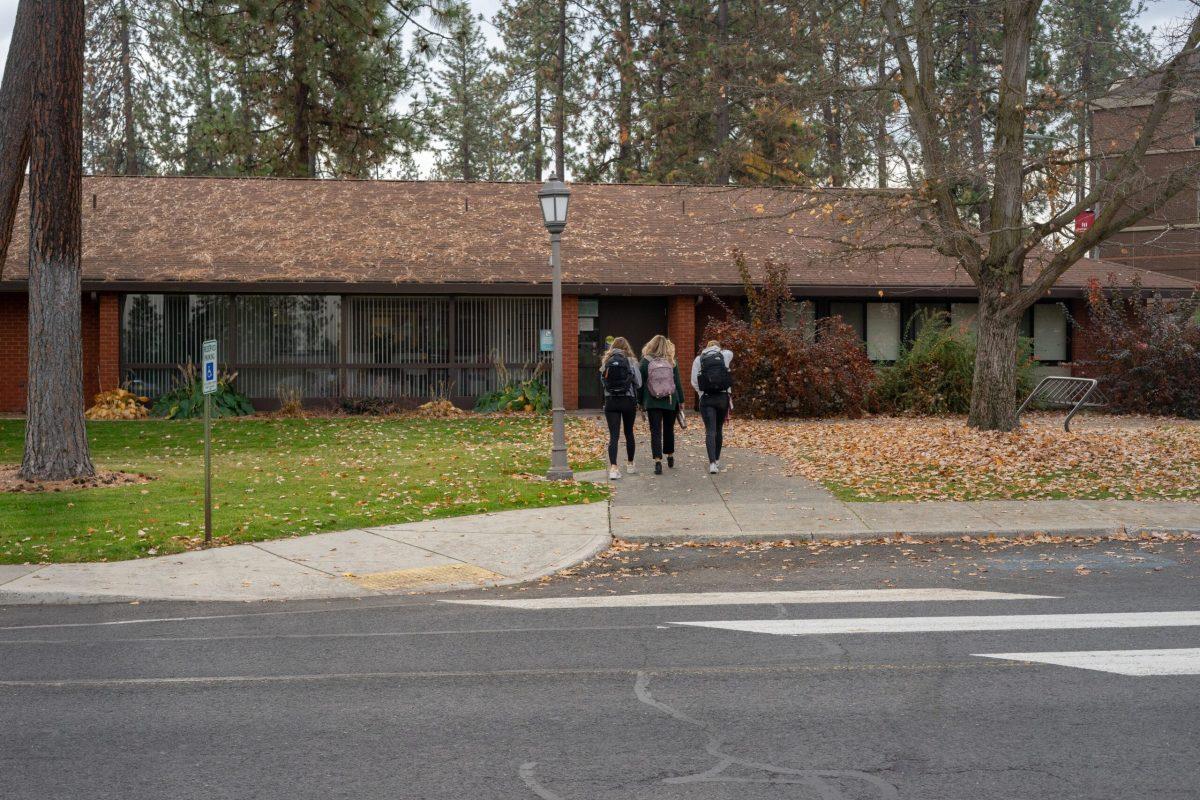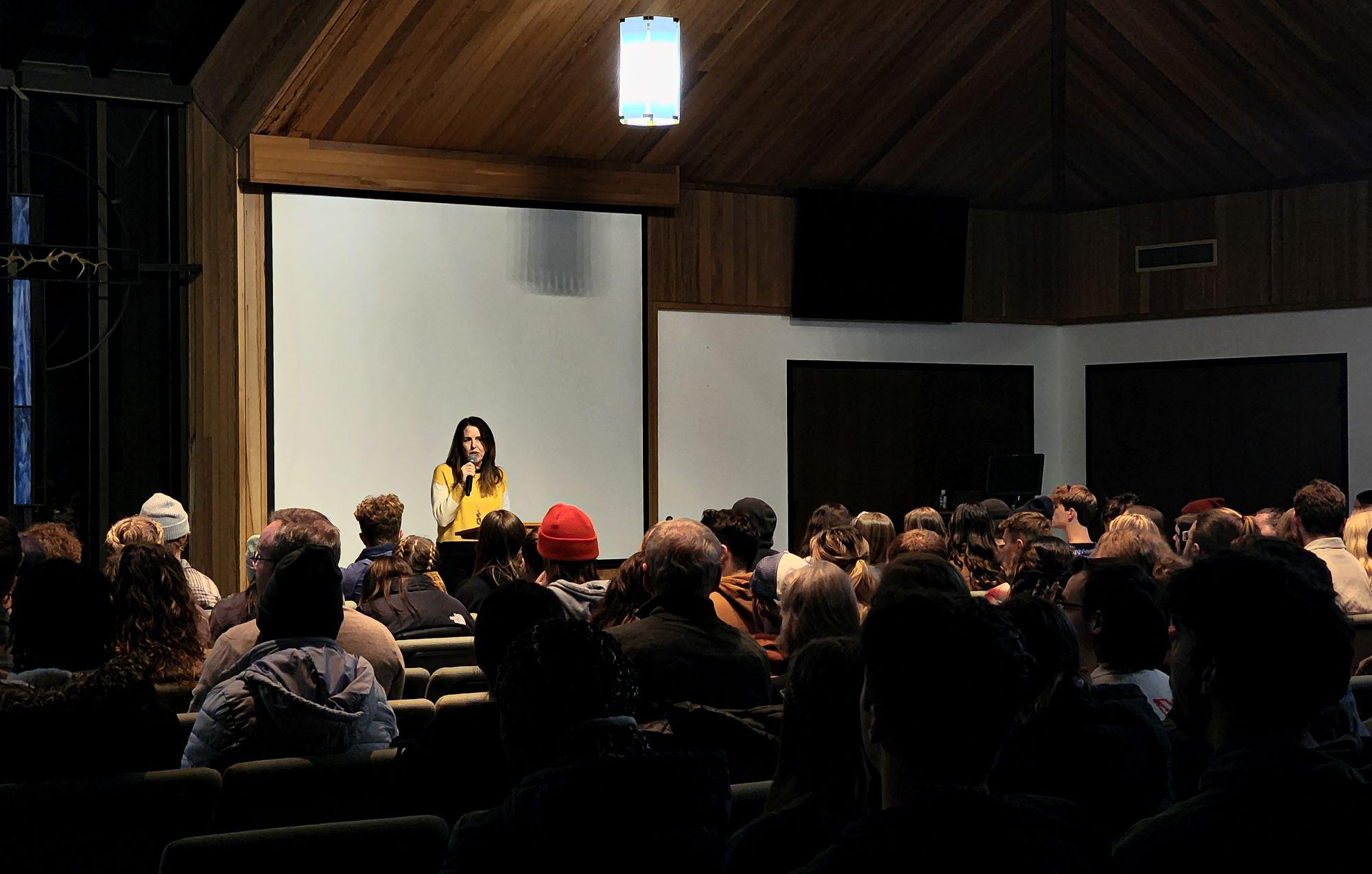
Dr. Jer Swigart stood before a crowd at Whitworth University’s chapel on Nov. 30 to speak on what he called “one of the most complicated conflicts:” the Israel-Gaza crisis.
Swigart is the co-founder and executive director of Global Immersion, an international organization that trains people on how to be peacemakers. He describes himself as a “pro-human peacemaker.”
As a part of Swigart’s work with Global Immersion, he flew to Israel on Oct. 5 — two days before Hamas attacked.
Once in Israel, he went to stay with a Palestinian couple on the West Bank. He told of a birthday bike ride, gathering supplies to make chicken alfredo and sitting outside eating dinner.
While eating dinner on Oct. 6, “violence began to crescendo,” said Swigart.
“’Welcome to Bethany on a Friday night,” Swigart recalled his friends saying.
The next day, they awoke to rockets and missiles colliding in the air above them. It was at this moment they realized this violence was different from the normal violence they had experienced previously.
The events on Oct. 7 “broke my heart for my Jewish kin,” said Swigart.
“[October 7] awakened a societal-level PTSD [for the Jewish people],” Swigart said. “The world has been trying to eliminate the Jewish people for thousands of years.”
Swigart also said that since October 7, there have been over 12,000 tons of explosives dropped on Gaza.
“Gaza is not like shooting a fish in a barrel,” said Swigart. “Gaza is like shooting a fish in a barrel with no water.”
Swigart’s talk also included a short history lesson on major events regarding Israel and Palestine to help the audience understand some of the political history of the area.
Once you look to history, you see that the events of Oct. 7 were both “inevitable and preventable,” said Swigart.
Swigart explained that individuals need to try to understand each other’s pain, because currently, each side is simply screaming that their pain is worse than the others’.
He advocated for individuals involved in conflict to get close enough to their enemies to understand and “get curious about each other’s pain,” said Swigart.
Swigart ended the discussion by showing photos of two soldiers, side-by-side. Both were young men, but one was with Israel and the other with Hamas.
He asked the audience members to look into the eyes of these soldiers and, in doing so, to find and acknowledge their humanity.
“We have got to end this violence, long enough for us to reach for each other’s hands again,” said Swigart.

